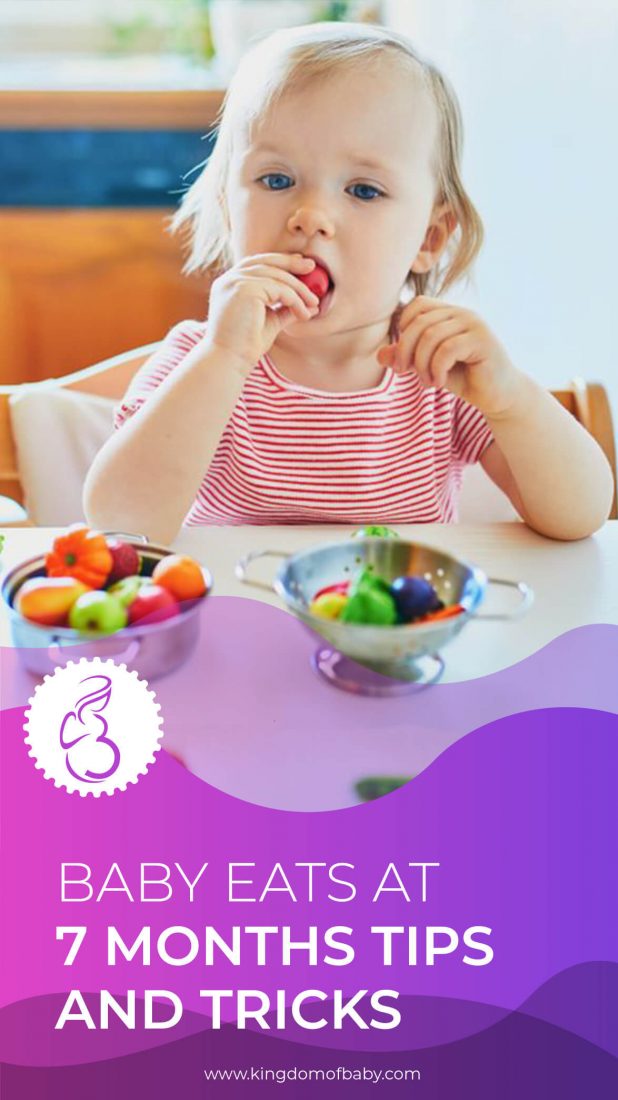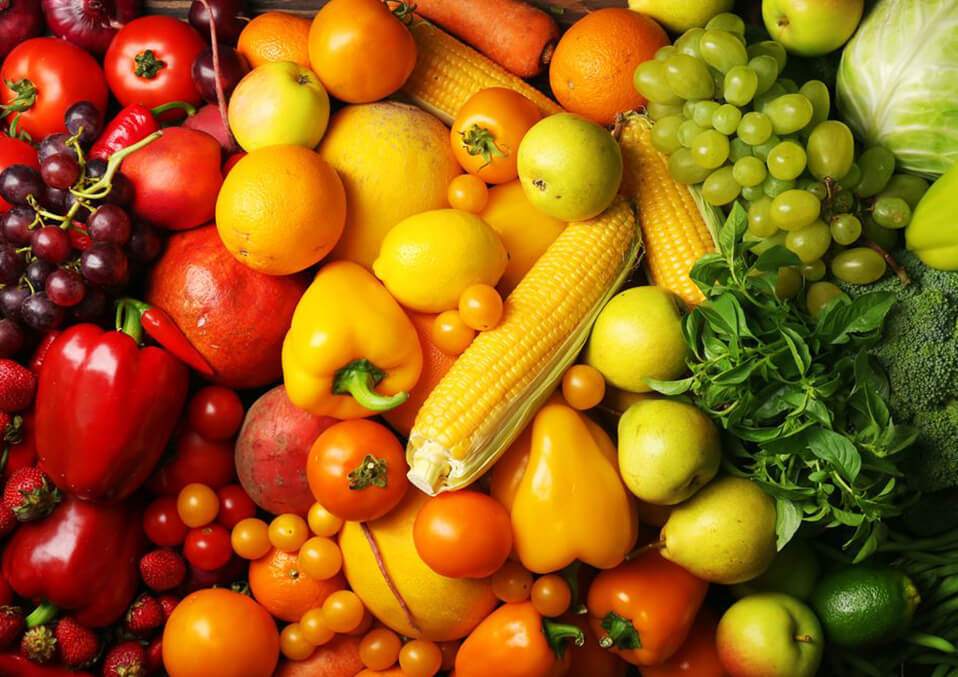
There are some signs to tell that you can already introduce your baby with solid foods. Experts would say that as soon as they learn how to sit without support, hand-to-mouth coordination, mouth to spoon and when you have noticed that your baby is a bit aggressive or shows signs of hungriness even after breastfeeding, it means that they are now ready to try out different kinds of food. These signs would most likely happen during the 6-month period that is why by the time it reaches the 7th month you can now introduce solid foods. However, this is not applicable to all babies since there are some babies that would have a slower developmental phase but it is still normal.
How much should a 7-month old baby eat?

As the baby grows, her appetite for food will eventually increase. The amount that they eat on a daily basis varies so you don’t have to worry because there are times when they eat a lot on some days while less on others because she is still learning about eating. Babies have the ability to self-regulate when it comes to their feeding capacity, they know when they are full and stop eating.
For fruits, you can give your baby at least 1 teaspoon on a single serving or 3-4 tablespoons distributed in 4 feedings throughout the day. For cereals or porridge, 3 tablespoons in a single serving or 9 tablespoons distributed for 2-3 feedings throughout the day. For vegetables, 1 teaspoon for a single serving or 2-3 tablespoons distributed for at least 4 feedings throughout the day.
Feeding Schedule

It is important to follow a pattern in feeding your baby, especially for solid foods. You should stick to a pattern for breakfast, snack time, lunch and dinner so as not to interrupt your baby’s metabolism. If you would notice, it is important to give your baby breastmilk first before giving solid food at least during the first month of introducing solid food because the nutrients found in the breastmilk is their primary need.
- Early morning: Breastmilk is suitable when they first wake up in the morning.
- Morning: Before giving your baby at least 4-6 ounces of solid food for breakfast, breastfeed them first.
- Early afternoon: After the morning nap, breastfeed your baby before giving a small portion of solid foods.
- Afternoon: Giving your baby solid food at this time is optional but after waking up from mid-day nap, breastfeed your baby.
- Early evening: If you didn’t give your baby solid food during the afternoon, you may now give her a small portion of solid food during dinner time after breastfeeding.
- Evening: It is no longer advisable to give your baby solid food before going to bed, breastfeeding is just enough for the baby before putting them down to sleep.
Things to keep in mind in feeding your baby
- If it is the first time that you would introduce your baby to solid food, start with 1-2 tablespoons of food in small portions; it would take time for your baby how to eat that is why if your baby refuses, don’t be bothered because that is normal. Just make sure to always try feeding her until she tries to eat.
- Be wary about the possible allergies that may get. The common allergens come from eggs, wheat, peanuts, shellfish and fish that is why it is important to start with small amounts and check for possible bodily reactions.
- You will only know that you are possibly overfeeding is on her weight. If the weight of your baby is more than compared to the usual weight of babies at her age them there is a possibility of overfeeding so your doctor would recommend lessening their daily intake.
- Even though you have already introduced solid foods, you must still continue with her breastfeeding until she’ll take less because the nutritional value of breastmilk is still optimum at her age.
- Always observe your babies for possible choking. Avoid giving then raw foods, or anything round and sticky.
- It is normal that your body will refuse to eat, don’t pressure them to eat because there is a possibility that she is just not hungry.
- Your baby may eat less if she’s ill or teething but when recovered, you may expect that she will have a big appetite to eat food.
Foods that you can give your 7-month old baby

Chewing is a good exercise for your baby’s mouth and jaw. They already have strong gums that is why they do not need teeth for them to be able to eat solid foods. You can give your baby diet that consists of the foods in the main group that is rich in carbohydrates, protein, and calcium. Start with foods that are pureed before taking them into the level of mashed food. These are the common healthy foods that are given to babies at 7-moths old.
1. Vegetables
It is a great source of minerals and multi-vitamins. You can prepare the vegetable by steaming it and making it into a puree. Popular vegetables used for babies are squash, potato, yam, and carrots.
2. Fruit
It is a great source of fiber, minerals and different kinds of vitamins. You need to mash it or make it into a puree for the baby to swallow it easily. Some commonly used fruits are papaya, watermelon, banana, and avocado.
3. Porridge
It is made from grains or cereals that are processed and powdered. This can be a good source of protein, fiber, and other essential nutrients. Porridge can be seen in commercially available cereals, oats, and barley.
4. Meat
It is a good source of protein and carbohydrates. Aside from pig’s meat, chicken is also a good choice because it is softer and it can easily be made into a puree.
5. Egg
It is a great food for healthy fat and protein. It can be given to babies in bite-size after hard boiling it. This can also be pureed or mashed.
Read also:
- How healthy is an apple for kids
- Corn tortilla recipes kids will love
- Healthy vegetable smoothie recipe


